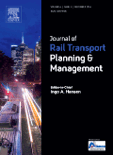
Journal of Rail Transport Planning & Management
Scope & Guideline
Driving Innovation in Rail Transport Research
Introduction
Aims and Scopes
- Operational Efficiency and Capacity Management:
Research aimed at improving the efficiency of railway operations through effective scheduling, capacity analysis, and resource management. - Technological Innovations in Rail Transport:
Exploration of new technologies, including automation, predictive maintenance, and data-driven decision-making to enhance railway services. - Sustainability and Energy Efficiency:
Studies focused on reducing the environmental impact of rail transport, including energy-saving measures and the adoption of alternative energy sources. - Passenger and Freight Transportation Dynamics:
Analysis of factors affecting passenger and freight transport, including demand forecasting, service quality, and user behavior. - Safety and Risk Management:
Investigations into safety protocols, risk assessment, and incident analysis to improve railway safety standards. - Policy and Regulatory Frameworks:
Examination of the regulatory environment and its impact on railway operations, including governance and organizational issues.
Trending and Emerging
- Integration of Artificial Intelligence and Machine Learning:
A growing body of research is focusing on leveraging AI and machine learning techniques for predictive maintenance, traffic management, and enhancing operational efficiency. - Impact of COVID-19 on Rail Transport:
Recent studies examine how the pandemic has influenced passenger behavior and ridership patterns, leading to a re-evaluation of service models and operational strategies. - Sustainable Practices and Energy Solutions:
Emerging themes emphasize sustainability, including the development of energy-efficient systems and the exploration of alternative energy sources for rail operations. - Real-Time Data Utilization:
An increasing focus on using real-time data analytics for operational decision-making, enhancing the responsiveness and efficiency of railway services. - Smart Infrastructure and Digital Transformation:
Research is trending towards the implementation of smart technologies in railway infrastructure, including IoT applications for monitoring and management.
Declining or Waning
- Traditional Scheduling Techniques:
Research on conventional scheduling methods has diminished as more advanced, data-driven approaches gain traction, emphasizing the need for real-time adaptability. - Static Capacity Analysis:
There is a noticeable decline in studies focusing on static methods for assessing railway capacity as dynamic and simulation-based approaches become more widely accepted. - Manual Operations and Decision-Making:
With the rise of automation and intelligent systems, traditional manual operational strategies are being overshadowed, leading to fewer studies in this area. - Historical Case Studies of Rail Systems:
Interest in historical analyses of rail systems has waned, with researchers favoring contemporary issues and future-focused studies. - Simple Predictive Models:
As the field evolves, there is less emphasis on basic predictive models in favor of sophisticated machine learning and AI-driven methodologies.
Similar Journals
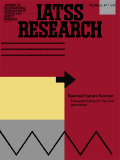
IATSS Research
Fostering collaboration for transformative safety solutions.IATSS Research, published by Elsevier Science Ltd, stands as a premier open-access journal at the intersection of engineering, safety research, urban studies, and transportation. Established in 2000, this esteemed journal caters to a diverse audience of researchers, industry professionals, and students eager to delve into innovative research that addresses pressing societal challenges. With an impressive impact factor and a consistent demonstration of high-quality scholarship, IATSS Research has achieved notable rankings within Scopus, including a top-tier position in Safety Research (Rank #13/109, 88th percentile) and Engineering (Rank #46/307, 85th percentile). The journal has evolved significantly since its inception, reflecting the dynamic nature of its converged fields from 2008 to 2024. By embracing open access, IATSS Research amplifies the reach of critical findings and fosters collaboration across disciplines, making it an invaluable resource for anyone invested in advancing knowledge and practices in modern engineering and urban safety.

TRANSPORTATION
Shaping the Future of Transport for Generations to ComeTRANSPORTATION is a premier academic journal published by Springer, focusing on the dynamic and interdisciplinary field of transportation studies. Established in 1972 and set to release its latest findings through 2024, the journal has garnered a strong reputation, reflected in its impressive impact factor and Q1 quartile rankings across key categories including Civil and Structural Engineering, Development, and Transportation. With a robust Scopus ranking that places it in the top percentile of its fields (ranked #16/306 in Social Sciences - Development, #27/379 in Engineering - Civil and Structural Engineering, and #23/141 in Social Sciences - Transportation), "TRANSPORTATION" is crucial for researchers, professionals, and students alike who seek to expand their understanding of innovative transport systems, policies, and technologies. By offering in-depth research articles, reviews, and case studies, the journal serves as a vital resource for advancing academic knowledge and practical solutions in the transportation sector. Part of a thriving academic community, contributors and readers alike are encouraged to engage with the latest research to foster development in pressing issues related to mobility and infrastructure.
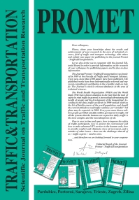
Promet-Traffic & Transportation
Shaping Sustainable Transportation Systems WorldwidePromet-Traffic & Transportation is a premier open-access journal published by SVEUCILISTE U ZAGREBU, FAKULTET PROMETNIH ZNANOSTI, dedicated to advancing the fields of traffic and transportation engineering. Since its inception in 2001, the journal has played a crucial role in disseminating innovative research and best practices within its scope, which embraces civil and structural engineering, urban studies, and various engineering disciplines. With a Q3 ranking in multiple categories as of 2023, including Civil and Structural Engineering and Ocean Engineering, Promet is positioned to provide valuable insights into contemporary challenges and solutions in transportation systems. Open-access since 2013, the journal ensures that all published articles are freely available to researchers, practitioners, and students globally, fostering a collaborative environment for knowledge exchange. Based in Croatia, it serves as an essential platform for interdisciplinary studies that influence the future of traffic and transportation policies and practices.
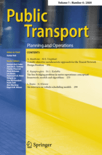
Public Transport
Exploring Innovations in Public Transport Systems.Public Transport is a prestigious journal published by Springer Heidelberg, focusing on the critical field of transportation systems and their impacts on urban planning, infrastructure, and environmental management. With an ISSN of 1866-749X and an E-ISSN of 1613-7159, the journal has established itself as a vital resource for researchers and practitioners alike, particularly noted for its Q2 ranking in Information Systems, Management Science and Operations Research, and Transportation, alongside a Q1 ranking in Mechanical Engineering as of 2023. This blend of categories underscores its interdisciplinary nature, making it an essential reading for individuals aiming to enhance their understanding of public transport systems from various angles. While the journal currently does not offer open access, its authoritative articles are critical for driving innovation and policy in the transportation sector. With a converged publication period from 2009 to 2024, Public Transport continues to lead discussions, disseminate research trends, and provide insight into the evolution of transportation methodologies, reflecting its significant impact as a reliable academic source in this crucial field.

International Journal of Transport Economics
Unveiling Key Insights in Transport Policy and EconomicsWelcome to the International Journal of Transport Economics, a premier platform published by FABRIZIO SERRA EDITORE that explores the intricate relationship between transport economics and its impact on societal progress. Established to foster academic discourse, this journal serves as a vital resource for researchers, professionals, and students in the fields of economics, transportation, and public policy. With a commitment to publishing high-quality, peer-reviewed articles, the journal delves into essential topics such as transport policy analysis, infrastructure economics, and sustainable transportation solutions. Although it operates under a traditional subscription model, the journal remains dedicated to disseminating crucial findings that influence transport strategies worldwide. Nestled in the heart of Pisa, Italy, the International Journal of Transport Economics stands as a beacon of knowledge, playing a pivotal role in shaping the future of transport economics and promoting innovative research in the discipline.
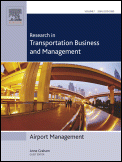
Research in Transportation Business and Management
Exploring the Intersection of Business and Transportation.Research in Transportation Business and Management is a prominent academic journal published by ELSEVIER that specializes in the interdisciplinary analysis of transportation business practices and management strategies. With an ISSN of 2210-5395 and an E-ISSN of 2210-5409, this journal has established itself as a critical resource in the fields of business, management, and transportation studies. It boasts an impressive Q1 ranking across multiple categories, including Business and International Management, Decision Sciences, and Management Science, indicating its top-tier status among peer-reviewed journals. The journal serves as a platform for innovative research and theoretical advancements, welcoming contributions that address contemporary challenges and emerging trends in transportation systems. Although it operates with subscription access, the journal’s comprehensive analyses and empirical studies are essential for researchers, professionals, and students aiming to understand the complex interface of transportation, commerce, and policy-making. Located in Amsterdam, Netherlands, Research in Transportation Business and Management is committed to facilitating the exchange of knowledge and insights within this evolving and vital sector up to the year 2024.
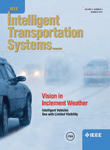
IEEE Intelligent Transportation Systems Magazine
Connecting Ideas to Revolutionize TravelIEEE Intelligent Transportation Systems Magazine, published by the IEEE-Institute of Electrical and Electronics Engineers Inc., is a leading journal in the fields of automotive engineering, computer science applications, and mechanical engineering. With an impressive impact factor reflected in its 2023 rankings, this journal sits in the top quartile (Q1) across multiple engineering categories, making it an essential resource for researchers and professionals dedicated to advancing the intelligent transportation systems landscape. The magazine covers a diverse array of topics from vehicle technology innovations to traffic management solutions, aimed at improving transportation efficiency, safety, and sustainability. Since its inception in 2009, the publication has established a solid reputation for disseminating cutting-edge research and practical applications in intelligent transportation, all while remaining an accessible resource for academic and industrial stakeholders alike. Subscribe today to stay at the forefront of transformative transportation technologies!
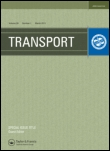
Transport
Connecting researchers to revolutionize transport engineering.Transport is a leading open-access journal published by VILNIUS GEDIMINAS TECH UNIVERSITY, specializing in the fields of automotive and mechanical engineering. Since its transition to open access in 2018, the journal has become a vital platform for disseminating high-quality research and innovative practices in transport systems, engineering technologies, and sustainable mobility solutions. With an ISSN of 1648-4142 and an E-ISSN of 1648-3480, Transport is indexed in Scopus with notable rankings, including Q2 in Automotive Engineering and Q3 in Mechanical Engineering for 2023, reflecting its influential presence within these disciplines. Researchers and practitioners are encouraged to contribute to this scholarly community, where their work will reach a robust international audience, thereby advancing knowledge and fostering collaborations in the ever-evolving transport sector. Based in Lithuania, the journal is committed to maintaining rigorous peer-review standards and promoting interdisciplinary studies to address the complex challenges in transportation engineering.

Vehicles
Empowering Research for Sustainable TransportationVehicles is a pioneering open access journal published by MDPI since 2019, dedicated to advancing knowledge in the fields of Automotive Engineering and Electrical and Electronic Engineering. Based in Switzerland, the journal provides a valuable platform for researchers, professionals, and students to disseminate high-quality, peer-reviewed research across essential areas of vehicle technology and innovation. With an impressive Q2 ranking in both Automotive Engineering and Electrical and Electronic Engineering as of 2023, and a notable placement in the Scopus rankings (Rank #37/125 and #320/797, respectively), Vehicles plays a critical role in fostering collaboration and knowledge exchange within these fast-evolving disciplines. Through its commitment to Open Access, Vehicles ensures that cutting-edge research is accessible to a global audience, thereby contributing significantly to the collective understanding and development of sustainable transportation solutions. Situated at the crossroads of engineering innovation and practical application, Vehicles invites contributions that explore contemporary challenges and promote transformative advancements in the automotive sector.
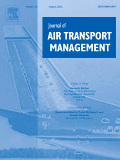
JOURNAL OF AIR TRANSPORT MANAGEMENT
Navigating the Future of Aviation InsightsJournal of Air Transport Management, published by Elsevier, serves as a leading academic forum for the exploration and dissemination of knowledge in the field of air transport and aviation management. Since its inception in 1994, this journal has consistently ranked in the Q1 category across several pertinent fields including Law, Management, and Transportation, underscoring its significant impact and contribution to shaping policy and management strategies in the air transport sector. With an impressive Scopus ranking placing it among the top journals in various categories—such as #8 in Social Sciences Law and #16 in Social Sciences Transportation—the Journal of Air Transport Management is a vital resource for researchers, academics, professionals, and students alike, providing insightful analyses of current trends, challenges, and advancements in the industry. The journal's commitment to high-quality, peer-reviewed content makes it an essential reference for those engaged in the fields of air transport and related disciplines.